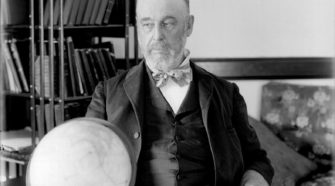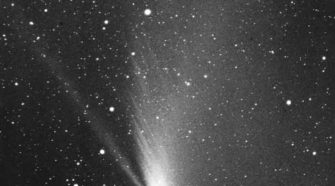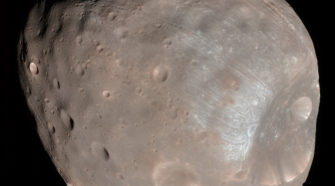Week 33
This Week in History: August 9-15
AUGUST 9, 1996: The NEAT program based in Hawaii discovers an apparent asteroid, designated 1996 PW, that is found to be traveling in a near-parabolic comet-like orbit with an approximate orbital period of 5600 years. 1996 PW was the first known long-period “Damocloid,” and these objects are discussed in a future “Special Topics” presentation. AUGUST …
Comet of the Week: Mrkos 1957d
Perihelion: 1957 August 1.44, q = 0.355 AU During the mid-20th Century the northern hemisphere went several decades without a bright naked-eye comet; what bright comets that did appear during that time were primarily visible from the southern hemisphere. This changed during 1957, when Comet Arend-Roland 1956h became bright and conspicuous during April and May, …
Special Topic: Small Planetary Moons
Throughout “Ice and Stone 2020” I have generally used the term “small bodies of the solar system” to refer to comets and asteroids. However, there is another type of “small body” that we encounter throughout the solar system: these are the smaller moons that accompany many of the major planets. The dividing line between what …



